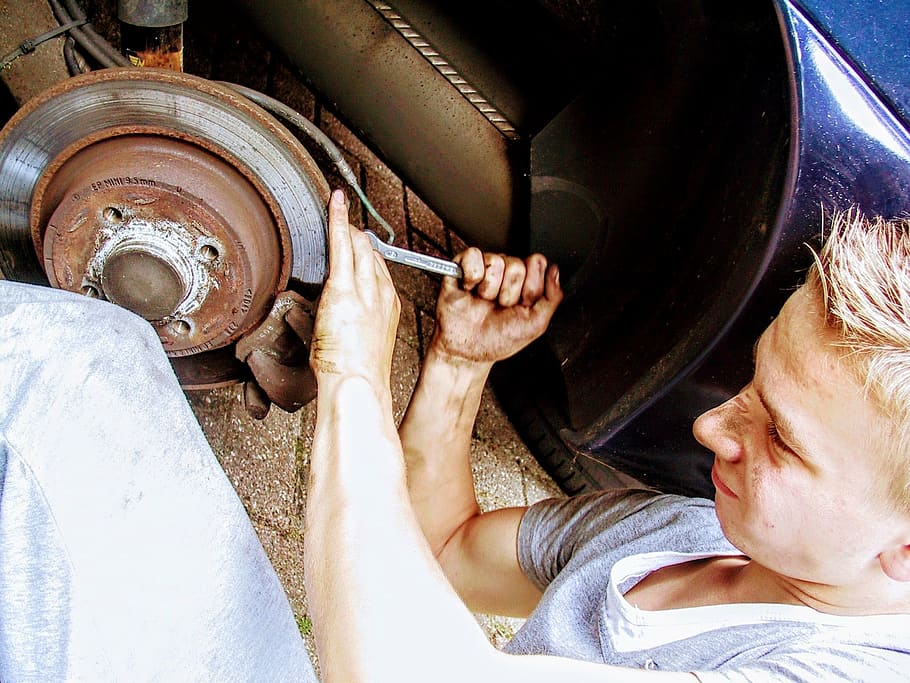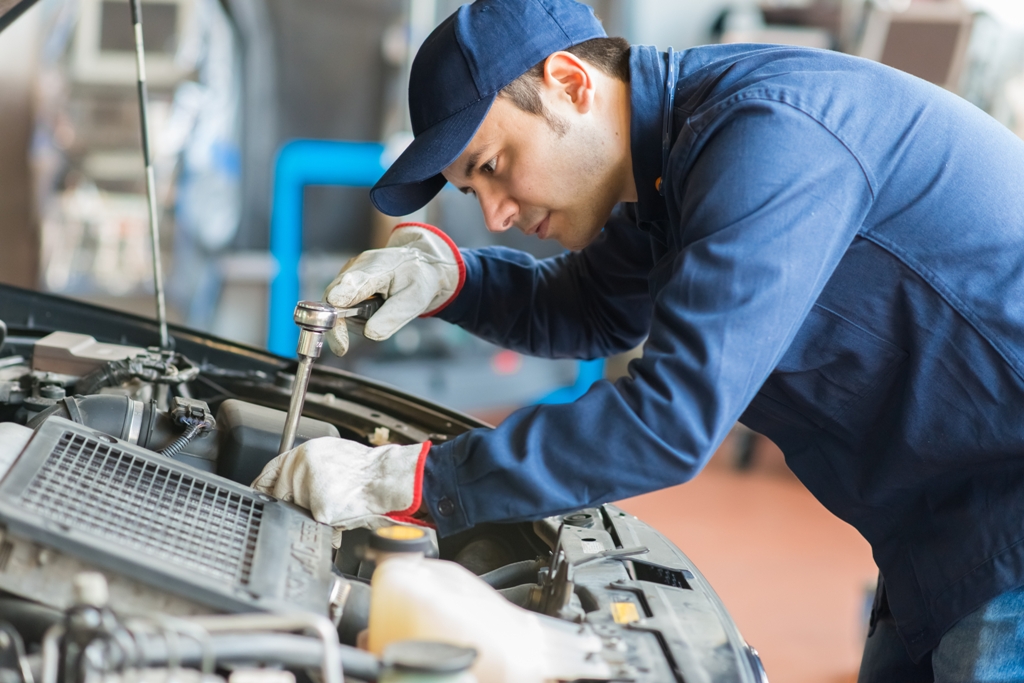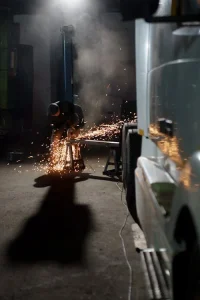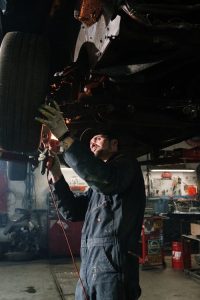When your car starts acting up, it can be frustrating and overwhelming. Knowing which repairs to prioritize can make all the difference in keeping your vehicle running smoothly and safely. Here are some expert car repairs that can address common issues with your A/C, suspension, brakes, general mechanics, and electrical systems.
Keep Your A/C in Top Shape
Your car’s air conditioning system keeps you cool during hot weather and plays a vital role in dehumidifying the air inside your vehicle. Here’s how you can ensure your A/C stays in top shape:
- Regular Maintenance: Schedule regular A/C maintenance with a certified technician. They will check for leaks, inspect the compressor, and ensure that the refrigerant levels are adequate.
- Clean the Condenser: The condenser can become clogged with dirt and debris, reducing the efficiency of your A/C. Clean it regularly to maintain optimal performance.
- Check the Cabin Filter: Replace the cabin air filter every 12,000 to 15,000 miles to ensure clean airflow and prevent strain on your A/C system.
- Inspect Belts and Hoses: Worn belts and hoses can lead to A/C failure. Have them inspected and replaced as necessary.
Enhance Your Suspension System
A well-maintained suspension system improves your car’s handling and provides a comfortable ride. Here are some tips to keep your suspension in excellent condition:
- Regular Inspections: Have your suspension system inspected at least once a year. Look for signs of wear, such as uneven tire wear, drifting, or a bumpy ride.
- Replace Worn Shocks and Struts: Shocks and struts wear out over time, leading to poor handling and increased braking distance. Replace them every 50,000 to 100,000 miles, depending on your driving conditions.
- Check Bushings and Joints: Inspect the bushings and joints for wear and tear. Replace them to maintain smooth and responsive steering.
- Align the Wheels: Proper wheel alignment ensures even tire wear and optimal handling. Have your alignment checked annually or whenever you notice uneven tire wear or steering issues.
Maintain Your Brakes for Safety
Your brakes are one of the most critical safety features of your vehicle. Regular maintenance can prevent brake failure and ensure your safety on the road:
- Inspect Brake Pads and Rotors: Check your brake pads and rotors for wear every 12,000 miles. Replace them if they are worn down to the minimum thickness.
- Bleed the Brake Lines: Air in the brake lines can reduce braking efficiency. Bleed the brake lines every two years to maintain optimal performance.
- Check Brake Fluid: Low brake fluid can lead to brake failure. Check the brake fluid level regularly and top it off as needed. Replace the fluid every two years.
- Test the Brake System: Regularly test your brakes to ensure they respond correctly. If you notice any sponginess or delayed response, have them inspected immediately.
Address General Mechanic Needs
General maintenance and repairs are essential to keep your car running smoothly. Here are some key areas to focus on:
- Oil Changes: Regular oil changes prevent engine wear and extend the life of your vehicle. Follow the manufacturer’s recommended oil change intervals, usually every 3,000 to 5,000 miles.
- Replace Air Filters: A clean air filter improves engine performance and fuel efficiency. Replace it every 12,000 to 15,000 miles.
- Inspect Belts and Hoses: Check belts and hoses for cracks, fraying, or wear. Replace them to prevent breakdowns and costly repairs.
- Check Fluids: Regularly check and top off all fluids, including coolant, transmission fluid, power steering fluid, and windshield washer fluid.
Tackle Electrical Repairs
Your car’s electrical system powers everything from the lights to the ignition. Keeping it in good working order is crucial for your vehicle’s performance:
- Inspect the Battery: Check your battery terminals for corrosion and ensure a secure connection. Replace the battery every 3-5 years or if you notice signs of weakness.
- Test the Alternator: The alternator charges the battery and powers the electrical system. Have it tested regularly to ensure it’s functioning correctly.
- Check Fuses and Relays: Blown fuses or faulty relays can cause electrical issues. Inspect and replace them as needed.
- Inspect Wiring: Look for frayed or damaged wires that can cause electrical problems. Have them repaired or replaced by a professional.
Regular maintenance and timely repairs can keep your car running smoothly and prevent costly breakdowns. By focusing on your A/C, suspension, brakes, general mechanic needs, and electrical system, you can ensure your vehicle stays in top condition. Prioritize these expert car repairs and enjoy a safer, more reliable ride.




